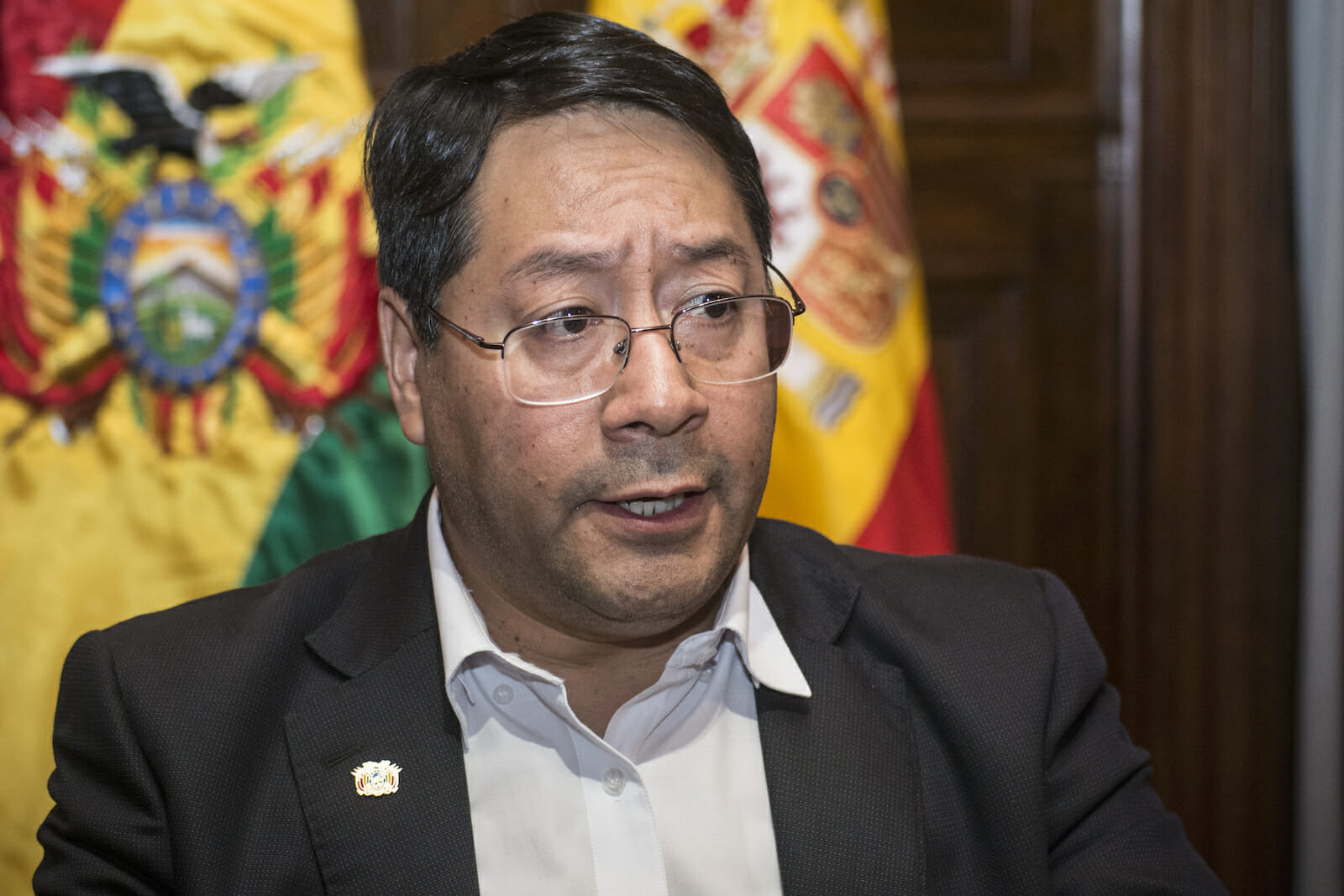
Moving Leftward: MAS Maintains Political Hegemony in Bolivia
It’s official: Luis Arce, representing the Movement Towards Socialism (MAS) party, is the victor of Bolivia’s snap general elections that were held on October 18. Despite continued coronavirus lockdown measures halting the original election plans on multiple occasions, millions of Bolivians flocked to the polls to vote. There were a total of eight candidates vying for the presidency after the resignation of President Evo Morales in November 2019. At the same time, Bolivians also cast ballots for all members of Congress.
The election had been postponed three separate times as a result of the ongoing coronavirus pandemic. Instances of violence added to fears that the election would be embroiled in conflict, as immediately following the October 2019 election, Bolivia experienced more than 21 days of civil protests, which have continued throughout the new year. Public outcry increased in 2019 after an investigation by the Organization of American States (OAS) into the election found that there was “intentional manipulation” and “serious irregularities” regarding poll official signatures and the flow of voting data. Concerns over the integrity of the election and the validity of the results resulted in the resignation of Morales in November 2019, who won by a razor-thin margin and was seeking to secure a fourth term. Resulting in Morales’ resignation was the installation of an interim government led by opposition leader Jeanine Áñez, who later announced in September 2020 that she was removing herself from the ballot out of fear of political infighting.
A history of tumultuous politics
The last decade of Bolivian politics has been plagued by ongoing instability exacerbated by social protests, opposition movements, and constitutional changes. Following his seismic victory in December 2005 and representing the left-leaning MAS party, Morales pledged to lead Bolivia into “a history where we search for equality, justice, and peace with social justice.” Hailed as a “not-your-average politician” and a “voice for the voiceless,” Morales ran on a platform that advocated for extensive social, economic, and political overhaul.
As South America’s first Indigenous president, one of Morales’s primary objectives was rooted in boosting inclusion for Bolivia’s Indigenous community in all areas, as they have long been excluded from the national conversation. Morales also sought to strengthen the economy by undoing the changes made by former President Carlos Mesa, who had renegotiated contracts with multinational energy companies that exploited Bolivia’s natural gas reserves–the second largest in the region. Once elected, Morales nullified said contracts and instead passed a 2005 decree that nationalized the hydrocarbon industry, including gas and oil deposits. Once dominated by foreign companies, the decree enhanced state decision-making power in the profitable petroleum industry, leading to increases in social spending and reductions in poverty levels. According to a 2018 article by the Council on Hemispheric Affairs (COHA), although opposition groups claimed that Morales was ruining Bolivia’s illustrious export economy, the country experienced a decade of steady economic growth as a result of the nationalization decree and “Evonomics” policies, with profits from gas soaring to between 80-90 percent.
As a dominant political force, Morales and the MAS also successfully passed a new constitution in January 2008. The reformed document primarily granted more rights for Indigenous peoples and redirected state authority to oversight bodies. Additionally, Morales spearheaded the revision of the runoff voting system, which allowed him to modify the way in which the president is elected. Now going to the most voted-for candidate, the winner of the presidential election must acquire at least 40 percent of all valid votes and achieve at least a ten-point advantage over the closest runner-up to avoid a second round of elections. At the time it was created, the new voting system benefited Morales specifically; as the incumbent, Morales only needed enough votes to beat the runner-up, as opposition votes would be divided between all other candidates. While the reformed system inherently benefits those currently in power, it is also a double-edged sword; if MAS were to have lost the election, the system would have then benefited the new cabinet.
What were the key election issues?
Jobs
According to an early October poll by the Latin American Strategic Center for Geopolitics (Centro Estratégico Latinoamericano de Geopolítica, CELAG), the biggest flashpoint of the election was the economy, with 53 percent of polled Bolivians citing jobs as their biggest concern. Data collected reveals that, from January through July of 2020, Bolivia’s economy contracted by 7.9 percent, with unemployment rising to 11.8 percent; the pandemic has caused approximately $5 billion in economic damage. Since coronavirus lockdown measures are set to remain in place through October 31, the economic ramifications may only worsen.
Public Health
As job prospects remain bleak, the pandemic rages on, testing the readiness and capabilities of Bolivia’s public health sector. With this understanding in mind, the impacts of the pandemic extend beyond the health sector and bleed into the governing integrity of the state. Áñez, who tested positive in July 2020, already received extensive bouts of criticism for her coronavirus response, which has been disorganized at best. Emerging economies, particularly those whose political systems are already fractured and insecure, such as Bolivia, face an even tougher challenge in the face of the pandemic. The crisis threatens the stabilization of the country’s political system, as well as the structural soundness of its social and economic systems. Compounded by poor infrastructure, a lack of medical resources, and widespread poverty, Bolivia’s chances of successfully handling the virus, at this point in time, are slim.
The postponement of Bolivia’s presidential election on several occasions is a prime example of how the pandemic has already impacted the democratic process in several countries. As of November 2, Bolivia has reported a total of 141,833 confirmed cases and 8,731 deaths (although limited testing across the state may mean that the actual number of confirmed cases is much higher).
Corruption
Finally, corruption was cited as the third biggest issue, with 20 percent of Bolivians expressing concern about the fairness of not only the political system, but also the election. The main threat to a fair and transparent election is often violence, as several rounds of postponement have provided an opportunity for opposition forces to rally voters throughout the country.
What does another MAS win mean for Bolivia?
Now that Arce has secured the presidency, it likely means another five years of MAS policies, including a state-led economy, a continued focus on Indigenous rights and representation to the dismay of Bolivia’s elite, low foreign investment from multinational companies, and relatively poor relations with other countries. Although a big win for socialism in a region that is increasingly moving leftward, there is still much that Arce must accomplish. Domestically, Morales had a history of focusing on rural communities rather than the urban poor, which sparked resentment by those who experienced the brunt of economic woes throughout his tenure. Growing corruption and fears of authoritarianism over the past decade also contributed to anti-MAS sentiments, which have only festered since Arce publicly adopted much of Morales’ platform as his own. If he hopes to retain the support of the voters who elected him, Arce needs to amp up his focus on wealthier, urban communities or at least demonstrate his commitment to working with them from this point on.
Another MAS victory also impacts Bolivia’s relationship with international actors, particularly the United States. Morales, who was a leader of a coca growers’ union, allowed the continued growth of coca, which significantly increased cocaine production and distribution in the region. Morales’ failure to condemn and control the illegal trade (rather he openly permitted it), put a strain on the bilateral relationship. In his early years, President Obama and Morales had a contested relationship, as Morales previously forced out the U.S. ambassador to Bolivia, U.S. officials from the DEA, and USAID. And although he expressed his support for Áñez, President Trump has called out and denounced the violence and the protests, tweeting that “The U.S. stands with the people of the regions for peace and democracy!” To make progress during his presidency, Arce should publicly express interest in working to improve Bolivia’s relationships with other countries.
Regardless, the question that now remains is whether or not Arce can help MAS remain the hegemonic political and ideological force that it has been while effectively overcoming several daunting challenges–including the coronavirus pandemic and a weak economy–in an increasingly polarized country.
